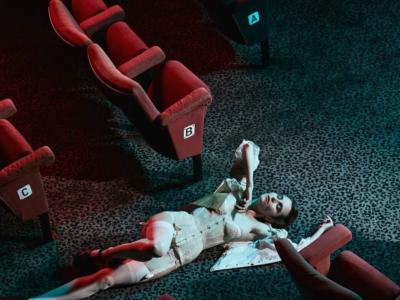During his early years in Cádiz, Antonio Lizana was surrounded by Flamenco, both dance and music: –
“During my adolescence I played, listened to flamenco and participated in many flamenco fiestas. So, I could say I was brought up in a very flamenco environment. Yet my instrument was the saxophone, which I had begun to study as a child at school. So, I found myself with an instrument that was not typical of this tradition. Flamenco had gone deep into my character and I loved to sing… yet, when I was 20 years old, I went to study Jazz in San Sebastián and totally submerged myself in the world of jazz… so totally, that I even left flamenco behind.”

Antonio Lizana’s highly original interpretation of this deeply traditional music emerged spontaneously when he was completing his Jazz studies in Musikene, the Advanced Music school in San Sebastián, the Basque country. The last assignment he was given was to compose some original pieces, and he was very surprised by what he created: -
“I discovered that whenever I set out to compose a number, even though I wanted them to sound like jazz, they inevitably moved towards Flamenco! Finally, I had to conclude: ‘I can’t fight this, if that is how it comes out, then that must be my way’.”
This was not what he had expected at all! Once at Musikene in San Sebastián, his world had become totally one of Jazz. His tutors included Mikel Andueza, Guillermo Klein, and Miguel Blanco, and he attended jazz seminars by renowned musicians like Jerry Bergonzi, Dick Oatts, Jim Snidero and Perico Sambeat. He even formed a part of ‘La Afrodisian Orchestra’ conducted by Miguel Antonio with whom he collaborated not only as an instrumentalist, but also as an arranger and singer (see Miguel Blanco’s album Satierísmos2011).
Lizana managed to achieve recognition early, having also been awarded the Cadiz Youth Prize for Art. However, initially he did not consider himself to be a cantaor: –
“It occurred to me that a voice would fit well with my compositions, although at the start, I didn’t consider myself to be a singer, little by little, I introduced phrases and words and found that my interpretations worked. It was really quick then, when I began to do that, because the reaction of the audiences was so good that I found myself singing. It was like a dream come true, so that in only a few months I was able to introduce more lyrics and, in that way, you could say, I found my voice!”
“Le acompaña el Sol / Cuando va a salir cada nuevo día / un cachito del cielo que se cayó /
Esa es la madre mía.”
(Accompanied by the Sun/that rises every new day / a little piece of sky that fell /That is my mother.)
Lizana’s musical career in flamenco however, began in a very untypical way: -
“Where it all began for me, had nothing to do with flamenco, not even with jazz! It’s easy to tell. I was a normal kid until I was 8 years old. My father had a bar and I would help him out. One day he said: “Son, have you heard these?” and he began to play me his collection of vinyl LPs from the 1970s! When I heard that symphonic rock with such depth and so much energy in the melodies, I was suddenly no longer interested in playing about, instead I dreamed with Pink Floyd, Yes, Jethro Tull and Led Zeppelin. I wandered around all day with my Walkman! Then I noticed that the school next to my house gave classical guitar, piano and saxophone lessons. I thought about it a bit… I had heard Pink Floyd and Bob Marley and in a quick decision, still as a child, I bought a sax and began to learn.”
‘Oriente’ is the third album produced by Antonio Lizana. In it, he explores the Arabic roots of Flamenco to great effect. Although the gypsies are said to have come to Europe from Northern India, the many centuries that Andalucía and the south of Spain remained occupied by the moors, profoundly influenced the local music. Even so, a more recent influence is also present: -
“…They are all branches of the same tree… in my case, as I come from Cádiz, I have always enjoyed going to Morocco and crucially when I was a teenager, a friend gave me a CD of Omar Farouk. I have lost touch with that friend, but I always remember him because since I was 17 years old, it is the only CD that goes with me everywhere and gets transferred to every new gadget, new computer or phone! I always download it again because I love it. I have taken a lot of inspiration from the melodic cadences.”
Antonio Lizana and his group have recorded 70 % of a new album that they hope to complete by the end of the summer. Meanwhile they will be touring Spain, Lithuania, Latin America and New York.
Jazz Eñe Antonio Lizana:
Antonio Lizana Vocals and Saxophone
Keyboards David Sancho
Drums Shayan Fathi
Bass Jesús Caparrós
Discography:
2012 De Viento
2015 Quimeras del Mar
2017 Oriente















